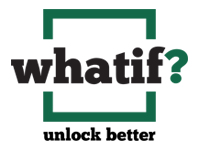
Let’s stop “shoulding” on each other
The pandemic has challenged virtually every institution and business. Rather than offering “should” oriented advice, let’s ask ourselves better questions to find answers that inspire action.
ince the start of the COVID-19 global pandemic, many well-intentioned authors have shared advice on what governments, companies, and individuals should do to survive the crisis. The common theme throughout has been “should.” As in, “The 10 Things CEOs Should Do,” “The Seven Actions CFOs Should Take,” or the “Five Steps Governments Should Proceed With.” And while this advice comes from credible sources, “shoulding” on people is rarely relationship enhancing.
The challenge with “should” oriented advice now is that we’re in the throes of a crisis. Unlike a business as usual state, things are more personal and emotional in a crisis. When we tell people what they should do when they’re in an emotional state, it usually reaps an unintended reward and rarely creates meaningful action. Anyone in a relationship can attest to what happens when you tell someone who’s in an emotional state what they should do. I’ve fallen into that trap many times, and it always ends the same way – not good.
The pandemic has challenged virtually every institution and business. Rather than offering “should” oriented advice, let’s ask ourselves better questions to find answers that inspire action.
Here are five better questions business leaders can ask to replace “should” advice:
· What have we learned about our ability to serve customers under stressful conditions and what’s been the impact on our customer experience?
· What friction has this exposed in our operations and supply chain, and how might we simplify processes to drive better stakeholder outcomes?
· What new investments will be needed to enhance our customer and employee experience, and how might it change our approach to capital allocation?
· What’s been the impact on our people, culture and brand, and what could our new working model look like?
· How might we reduce complexity to streamline and enrich our people, customer, and brand experience?
Tackling these big questions in a virtual working environment will pose a challenge and present an opportunity for leadership teams to grow stronger together.
Coming out of the pandemic, the world will be different for people, teams, businesses and society overall. So, let’s ask better questions and help shape a better what’s next for all of us.


Leave a Reply